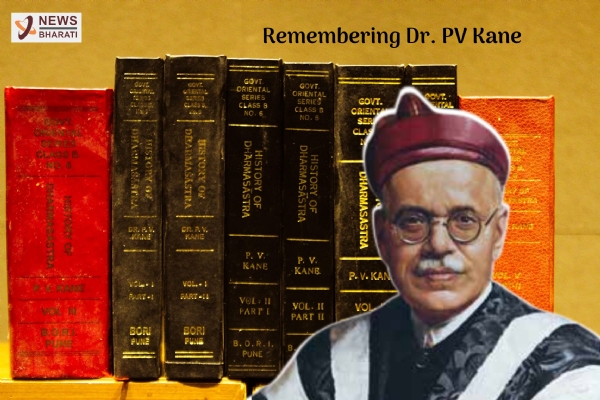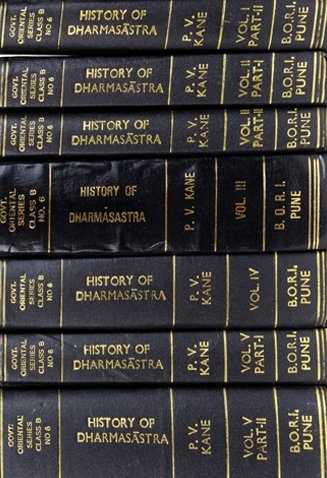Dharmashastras, Indian law and Mahamahopadhyaya PV Kane
Dr. PV Kane was born in Maharashtra"s Chiplun in a Chitpavan Brahmin family, hence, was brought up in a Sanskrit friendly environment. When he grew up, he edited several Sanskrit scripts and later after studying law joined the Bombay High Court as an advocate.
Total Views |
On the occasion of the legend's death anniversary, the Indian govt launched a postal stamp dedicating to the legendary work of Mahamahopadhyaya Bharat Ratna Pandurang Vaman Kane today (Apr 18). Dr. P V Kane's contribution in ancient Indian history, Sanskrit literature and especially the Indian law remains unparalleled till date and is believed to certainly remain so, until Indian law exists.

Dr. PV Kane was born in Maharashtra's Chiplun in a Chitpavan Brahmin family, hence, was brought up in a Sanskrit friendly environment. When he grew up, he edited several Sanskrit scripts and later after studying law joined the Bombay High Court as an advocate. His passion for Sanskrit and law at the same time inspired him to create a milestone not only in Sanskrit literature but also in the Indian law. Today, amongst the lawyer commune, Mahamahopadhyaya PV Kane's work on the Dharmashastra is referred to as magnum opus; something that is considered as an incredibly best work of an individual, that contributes significantly to the society.
Mahamahopadhyay and the Dharmashastras
Dr. PV Kane became the first person to write the history of the Dharmashastras. He penned the five volume monograph about the Vedic text and titled it as the 'History of Dharmashastra (Ancient and Medieaval Religious and Civil Law)'. The 6,500 pages of work was published by Bhandarkar Research Institute, Pune. His work was an in-depth study of not only the Dharmashastra but also about the journey of the Hindu society through its several phases of transition, eventually leading to important legal changes in the society.

The Dharmashastras can be defined as ancient literature that was referred to by Hindus regarding lawful and legal aspects. The Dharmashastras prescribe moral laws and principles for religious and social duties for the people of a state. They texts acted as guidelines for the socio - religious code of conduct for Hindus, in the provinces and rule of Hindu rulers. The Dharmashastras also provide insights about the socio - religious and legal composition of ancient states in India.
Considering the path of foreign invaders, rulers, colonists that the Indian society has walked through out history, speaks volumes of the significance of Dr. Kane's study of the Dharmashastras. PV Kane's work on the Dharmashastras made him a guide for the courts of India as well, as there are several instances where the High Court Judges, would refer to his opinion while hearing cases of Hindu law.
Dr. PV Kane and the Indian Constitution
Dr. PV Kane's outlook towards the Indian constitution too, is much different that many intellectuals. According to Dr. PV Kane, the Indian constitution made a complete break with the traditional ideas prevalent in India by instilling a false notion among the people that they have rights but no obligations. The Indian scriptures and texts that formed the basis of just rule in ancient India, have always upheld the notion of duties to be performed by an individual, responsibilities that the individual is born with towards his family, the society, his state and also for the earth.
The Dharmashastra and other similar ancient texts give equal importance to all the aspects of duties to be performed by individuals as well as their rights. Sociologically speaking the ancient text comprehensively covered both aspects of ascribed and achieved status of an individual. According to Dr. PV Kane, the Indian constitution that was created by borrowing several aspects of the existing constitutions of states all around the world fails to equate the two and instead upholds merely the rights of an individual. No matter how controversial, this particular ideology that the Mahamahopadhyay puts forth if thought through can explain the root cause of several problems that the Indian society faces today.
Nevertheless, Dr. PV Kane will remain immortal in the story of India, may it be in regard of literature, history, society or law. On the death anniversary of the legend, the nation bows to the greatness of Mahamahopadhyaya PV Kane.


